By David Preston
The louder he talked of his honor,
the faster we counted our spoons. –Emerson
Social Justice Warriors. SJWs. They’re everywhere these days, from the local PTA to the halls of Congress, blaming the rest of us for everything from poverty to planetary collapse. It’s your fault transgender people don’t feel accepted, they shriek at random strangers on the internet. Your fault that women and blacks are still downtrodden.
The SJWs aren’t downtrodden themselves, of course. Indeed, they typically come from the most privileged layer of society. Enlightened creatures that they are, they naturally feel awful about having nice things, and they know there’s only one way to clear their conscience: By making the rest of us feel awful, too.
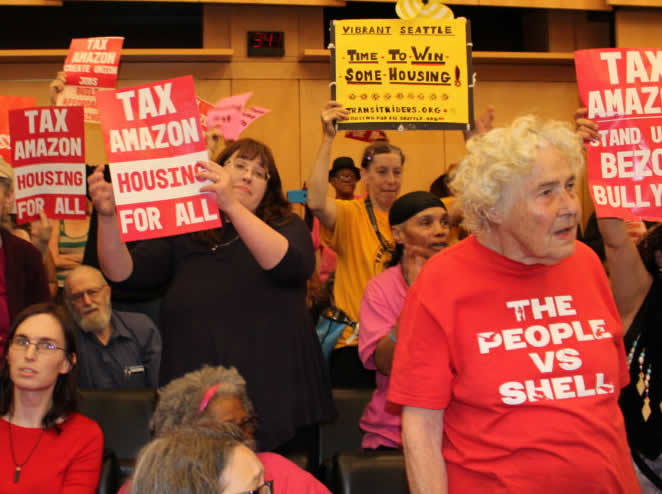
SJWs would be harmless, amusing even, if they weren’t so vicious. And so powerful. Here in Seattle, they effectively control the mayor’s office and eight of nine city council seats, through their influence on local opinion makers, political machines, and labor unions. They’re here in force, both online and at city hall, as we can see from photo above, which was taken at one of the dozens of political demonstrations that happen at city hall each year.
 When their collective wrath is aroused, these folks can get public officials sacked, bully colleges into cancelling forums, and hound their opponents into silence. Local newspaper editors tremble at the thought of offending them with the wrong choice of word, and all but the bravest of community groups let them set the agenda and parameters of discussion.
When their collective wrath is aroused, these folks can get public officials sacked, bully colleges into cancelling forums, and hound their opponents into silence. Local newspaper editors tremble at the thought of offending them with the wrong choice of word, and all but the bravest of community groups let them set the agenda and parameters of discussion.
The typical SJW is upper middle class, white, college educated, and between 20 and 40 years old. Despite his bluff online persona, he is often mild-mannered in person, if a bit socially inept.
Meet Paul…
 A programmer-lead at a Seattle software giant, Paul earns (conservatively) $150k per year, excluding stock awards. His spouse, a manager at a trendy work space rental company, pulls down probably another $75k per year. Their combined pay is at least $225k, or well over twice the median household income for this affluent city. The couple live in a spacious craftsman home in Seattle’s historically white Wallingford neighborhood, on a quiet, tree-lined street with views of downtown and the lake and access to several name-brand tech company offices, making their area a magnet for elite white-collar workers. The house is valued at over a million dollars and rising fast.
A programmer-lead at a Seattle software giant, Paul earns (conservatively) $150k per year, excluding stock awards. His spouse, a manager at a trendy work space rental company, pulls down probably another $75k per year. Their combined pay is at least $225k, or well over twice the median household income for this affluent city. The couple live in a spacious craftsman home in Seattle’s historically white Wallingford neighborhood, on a quiet, tree-lined street with views of downtown and the lake and access to several name-brand tech company offices, making their area a magnet for elite white-collar workers. The house is valued at over a million dollars and rising fast.
In a word, Paul’s living the dream.
Man on a Mission

The kind of place Paul lives in
Or should it be Man in a Mansion? Not that there’s anything wrong with that, of course, but oddly enough, Paul seems to be feeling guilty. Maybe he thinks it’s his fault there are homeless people sleeping under Seattle’s bridges. Paul has a theory about why those people are there. He thinks it because they can’t pay the rent. And they can’t pay the rent because there aren’t enough affordable apartments out there. Homeless people didn’t come here from somewhere else, Paul believes. They became homeless here. Cause the rent is too damn high.
Being a decent guy, and also a guy with a Twitter page and a following, Paul wants to do something about the housing crunch. And he wants other homeowners to get on board with him. The solution, he believes, is to let developers put up apartment buildings anywhere in the city, which should increase the supply of housing and thus bring the price down. The people under the bridges will then be able to get indoors.
That won’t happen overnight, of course. And until it does, we should keep raising taxes, to pay for more social services, better transit, and so on.
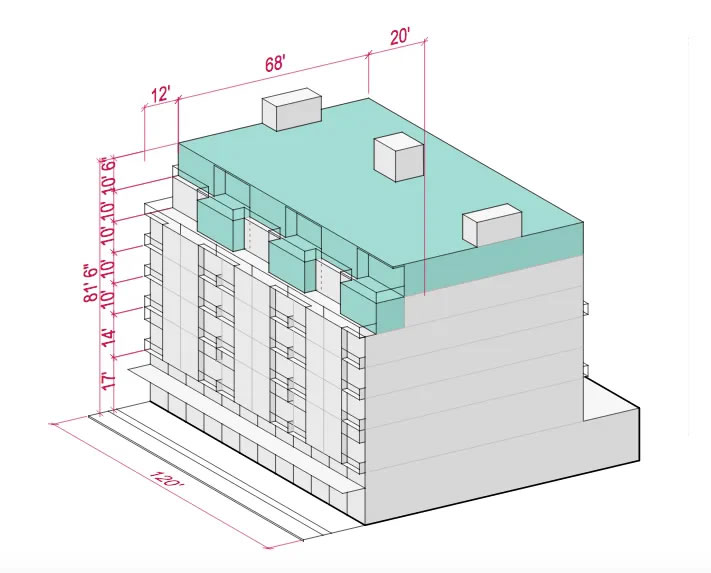
The kind of place Paul wants YOU to live in
Paul’s in good company in Seattle. Here, there are many young people like him who want a bigger, denser city with more bicycles and buses, and fewer cars. These are the “urbanists.”
Opposed to the urbanists are the slow-growth set. These are typically older white homeowners who don’t want to pay more taxes or have their neighborhoods become denser. The NIMBYs can be often be seen speaking out at community meetings and organizing into groups like the Seattle Coalition for Affordability and Equity, or SCALE. The slow-growth folks, once dominant in Seattle, are still numerically large. But they are politically weak. A silent majority, as it were.
Paul calls these folks NIMBYs, which is an acronym for Not In My Back Yard. By contrast, Paul is a YIMBY, or someone who says Yes (do put apartments) In My Back Yard.
Or so he lets on.
In 2017, Paul co-founded a group that supports the city of Seattle’s long-range plan for large swaths that are currently single-family housing (SFH) to be “upzoned” so that stacked housing units (up to three stories) can be built there. Retail stores will be included, typically on the first floor of the apartment buildings, to serve the newly densified neighborhoods. These areas are known as Urban Villages and several of them have already been laid out and developed in neighborhoods around Seattle.
Shortly after founding his group, Paul co-wrote an op-ed for the city newspaper, rebutting SCALE’s argument that densification was ruining the city and explaining how upzoning would make Seattle be more welcoming to newcomers.
There’d be nothing questionable about Paul’s position on density if only his own street had been on the upzone chopping block, too, but even as he was writing his op-ed, he already knew that the area around his home would be spared, because the city had already shared its plan for the Wallingford Urban Village at local community meetings where staff from the planning department had asked residents to help them draw the Village boundaries. And Paul attended at least one of those. Paul’s house is so close to the Village zone that it would have been a simple matter for the planners to redraw it to include his street. But they didn’t. And there’s no record of Paul asking for them to.
The draft Wallingford plan below was released in 2015. The final version was adopted in 2019:
Read about another density crusader who didn’t end up with an
Urban Village in his own neighborhood:
Super Density Man
Despite this, Paul might still have been sincere in his push for upzoning, but his moral position would have been stronger if he wasn’t so hard on the so-called NIMBYs who opposed the Urban Village because their homes will be affected, along with their quality of life. Let’s look at some of Paul’s public comments about the NIMBYs and put them in context.
Cocktail Progressive
Since taking up the urbanist cause, Paul has expanded his presence on social media, and he uses his Twitter banner as a way to convey who he is and what he stands for. He’s an urbanist and a progressive, he says. And he drinks.
The acronym “ITMFA” is an abbreviation for “Impeach The Motherfucker Already,” with the “motherfucker” being President Donald Trump, of course. The gay pride colors are a gratuitous virtue signal, more or less de rigeur in Seattle.

The Aristocrat
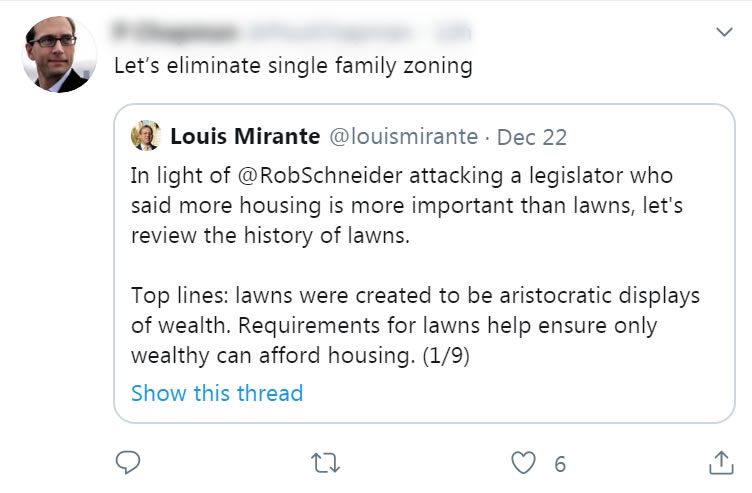 ◄ In this tweet from late 2019, Paul says single-family zoning should be abolished not just in the Urban Villages but throughout the city. Yet he was strangely quiet on the topic at a meeting when city planners asked him where he thought single-family zoning should be abolished in his neighborhood. He cheers the words of another urbanist who claims that lawns (lawns like Paul’s) are an aristocratic trick to keep poor people from owning homes. Note that Paul’s street (shown below) is lined both mature trees that give the neighborhood a calm, welcoming vibe and help keep his property value well above the $1 million mark.
◄ In this tweet from late 2019, Paul says single-family zoning should be abolished not just in the Urban Villages but throughout the city. Yet he was strangely quiet on the topic at a meeting when city planners asked him where he thought single-family zoning should be abolished in his neighborhood. He cheers the words of another urbanist who claims that lawns (lawns like Paul’s) are an aristocratic trick to keep poor people from owning homes. Note that Paul’s street (shown below) is lined both mature trees that give the neighborhood a calm, welcoming vibe and help keep his property value well above the $1 million mark.
No Parking Any Time
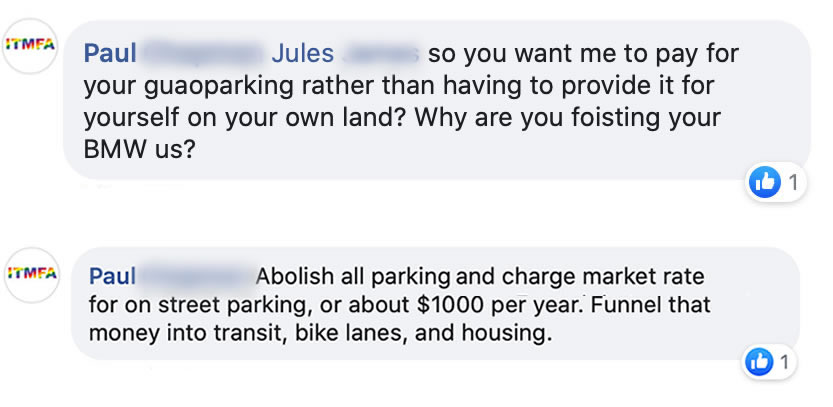
Above Paul responds on Facebook ▲ to a local homeowner who’d said he would support upzoning if parking for residents was available at city-subsidized garages. You want me to pay for you to park your BMW? Paul scoffs. No way! –He follows with a suggestion that everyone pay $1,000 a year for on-street parking.
Note that Paul wouldn’t have to pay for parking under the scheme he suggests, because he has a driveway where he parks his car(s). There’s plenty of on-street parking as well, as you can see from street photos above. Paul and his neighbors can even reserve after-hours parking spots on their street by buying a resident sticker for a nominal fee and placing it in their car window. People who live on Paul’s street never have to fight for a parking space on the street.
“Shut up and pay your taxes…” –Paul
Paul hates tax shirkers, from homeowners who whine about their property tax bill to big corporations like Amazon that helped force the city council to rescind the Head Tax it had passed just two months earlier. Paul speaks of a certain Pedersen, who doesn’t want to pay his taxes. That’s Alex Pedersen, a white home-owning moderate who ran and won against black socialist renter Shaun Scott to represent Seattle’s District 4 on the Seattle city council. Wallingford is in Pedersen’s district.▼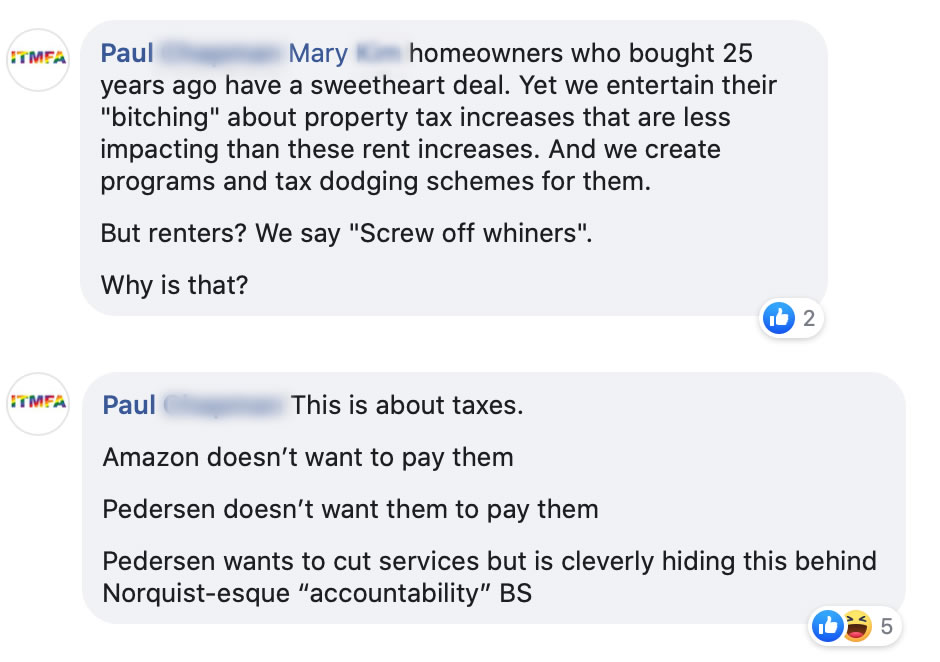
Read about a Twitter parody page
run by Paul and Pal: Absentee Alex
Absentee Alex
Be the Change
The problem with Paul’s position isn’t the argument he makes. It’s that he’s the one making it. If he thinks rich homeowners like himself aren’t paying their fair share in taxes, then shouldn’t he be extra eager to pay his? Of course he should. But here’s the thing. He’s not.
In 2017, Paul’s house was assessed at a value of $1,011,000 for taxes payable in 2018. Paul appealed that valuation and got it lowered by $127k, or 12.5 percent, saving himself $1,215.62 on his second tax payment for the year. Beyond the initial tax break, he may save thousands more over the following years, depending on the extent to which one year’s valuation is used as a basis for the next. ▼
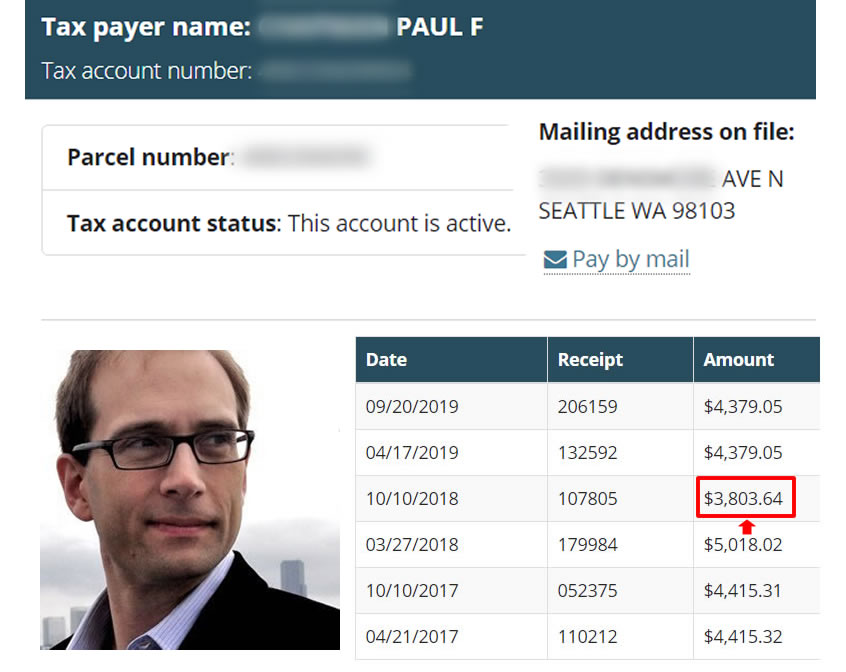
Upon making inquiries, I discovered that a 12.5% reduction is unusually high, with the typical reduction being less than half that amount, at 5%.
The assessor’s office keeps notes of site visits and this extract shows that the assessor made two visits to Paul’s house over a period of six months. Click on the image to see the full record. ▼
And this apparently wasn’t the first time Paul tried to get out of paying taxes. Years earlier, in 2009, he seems to have had some preliminary discussions with the King County assessor’s office related to another valuation appeal. The notes suggest that Paul complained about the home being assessed a premium for being a view property, since his view was increasingly being blocked by trees and nearby buildings.
Ya know it don’t come easy
According to a recent report by the King County auditor, the property tax assessor’s office received 7,500 appeals in 2017 for both commercial and residential properties. On average, 60% of tax appeals across both categories fail for various reasons. Interestingly, owners of high-value properties are more likely to appeal their valuations (and win) the auditor reported, and in 2017, owners of residential properties valued above $1 million were over four times more likely to appeal than owners of other residential properties.
A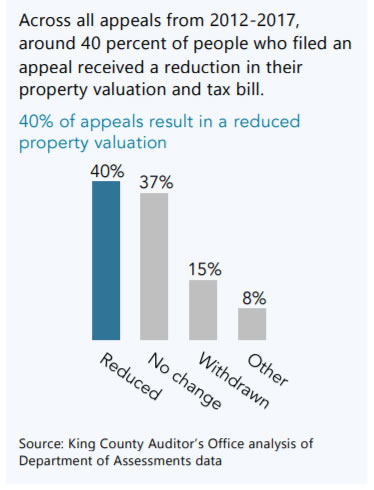 ppealing a tax evaluation is not just a matter of filling out a form either. You have to submit documents explaining to the Board of Equalization why you think the assessor was wrong. It often involves a visit to the property by the assessor, which is what happened in Paul’s case. The assessor initially upheld the original valuation, but after a site visit, the assessor relented and knocked it down.
ppealing a tax evaluation is not just a matter of filling out a form either. You have to submit documents explaining to the Board of Equalization why you think the assessor was wrong. It often involves a visit to the property by the assessor, which is what happened in Paul’s case. The assessor initially upheld the original valuation, but after a site visit, the assessor relented and knocked it down.

What happens when someone like Paul gets a tax cut? Does government just tighten its purse strings? Do the citizens just do without the services that money would have funded? –No. Other taxpayers have to make up the difference.
According to a King County Auditor’s Office report, “When an appeal is successful, the property owner receives a reduced tax bill and other property owners in the tax district will receive an increased tax bill the following year. That’s because the County still has to collect the total amount of the taxes levied that year under Washington state law. From 2015 to 2017, the County redistributed about $6.5 million in tax burden each year to other taxpayers to recover refunded taxes.”
 Go HERE to see the Auditor’s 2018 report on tax assessment appeals.
Go HERE to see the Auditor’s 2018 report on tax assessment appeals.
The excerpts above are on Page 6.
Paul responds…
I asked Paul to comment about his property tax valuation appeals for this article. He didn’t deny having asked for or gotten a lower valuation in 2018, but he didn’t address the question of how this looked in the context of his insistence that other people – people of less means than him – stop complaining about their own tax burden. He pointed out that Washington state has a regressive tax structure and added that Seattle is “one of the lowest tax cities in the nation,” but what he meant by that is unclear. He implied that he’d appealed his property tax because there’s no income tax and property taxes are regressive, but if that’s true, it puts him in an even worse light, because now he’s gotten out of his share of both.
that he’d appealed his property tax because there’s no income tax and property taxes are regressive, but if that’s true, it puts him in an even worse light, because now he’s gotten out of his share of both.
“I firmly believe and support that those with higher income and/or wealth should pay a higher tax rate,” he told me. “Thus I would be happy to pay an income tax in Seattle and Washington, and I am happy to continue to pay property tax.” But the fact is that he’s not at all happy to pay property tax either, or he wouldn’t have appealed his valuation. His behavior isn’t consistent with his words.
Read more about
“low-tax” Seattle: Excellent!
Excellent!
Before he signed off, Paul threatened me with civil and criminal actions for “targeted harassment.” His comments didn’t help me understanding his argument, but they were highly illuminating in terms of his character.
Read a transcript of our exchange here
Conclusion: Disregard hypocrites. Acquire solutions.

How much tax he thinks YOU should pay
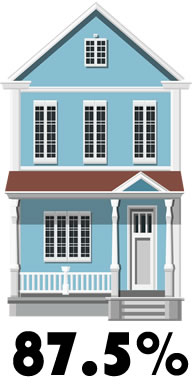
How much of Paul’s tax he pays
No reasonable person could disagree that everyone needs a decent place to live or that residents of a wealthy city should pay their fair share to support social programs and other measures for the common good. Unfortunately, the principles of compassion and fairness are often misconstrued as being liberal or progressive when they are in fact universal.
So is homelessness really a matter of left vs. right? No. It’s a matter of translating our shared ideals into solutions that get homeless people into housing and spread the cost of doing that fairly. And that won’t be simple, because the causes of homelessness are not simple. And we won’t even be able to get started on solving this until we put away this ideological posing of the kind Paul does and start working together for the common good.
One thing I know for sure. We won’t make a better world by relying on the “build apartments everywhere and make the rich pay” scheme, because capitalism doesn’t work like that. We know there’s no better alternative to capitalism, because if there were, someone would have come up with it by now. I think Paul knows this, too. He might not be the most honest person, but he’s at least smart enough not to believe the nonsense he spouts on social media. And that’s why, when it’s his turn to pay his taxes, he balks.
Most people will never know what Paul really does. They just know him from the internet. That’s how he can claim to be Robin Hood even while sitting in his mansion on the hill, and looking out over that sea of homeless people, still living under that bridge.

Author Disclosure: I own a modest rambler home in the South Delridge neighborhood of Seattle, on the edge of the Westwood Urban Village boundary. In the 23 years I’ve been here, I have never appealed my property tax evaluation; however, in 2020, my wife and I will be eligible for a property tax exemption based on our age and income. The exemption freezes a home’s valuation for tax purposes. –David Preston
Did you appreciate this article? Do you support honest journalism? Then please …
Postscript 1: And housing for all?
In the summer of 2019, Paul announced on social media that he’d convert part of his house to an Auxiliary Dwelling Unit (ADU) to do his part to alleviate the housing crisis. As the work progressed he kept his followers abreast of his progress (Got my inspection today / Just got a new address assigned / etc.). Unfortunately, the process had cost him so much money that he had to take out a big loan (or so he said) and that meant that he’d have to rent the unit at market rate or he’d lose out on the interest. With so many high-tech employers located within just blocks of his house, we can make a good guess about whom he ended up renting to. In the end, he hadn’t created a new unit for someone working at minimum wage but had only made room for another well-off tech worker like himself. And he even helped the boss (What? Amazon?) into the bargain ▼
I asked Paul what he rented the apartment for. He wouldn’t tell me, but an online rental pricing company shows the median one-bedroom apartment rent in Wallingford at $2,228 per month at the beginning of 2019, so $2,000 would be a safe estimate for a newer unit in this location. On the listing, Paul asked prospective tenants to bring references and proof of income in the form of two most recent paystubs. He also asked them to pay for a “screening fee,” which is standard practice.
It’s clear that he’s treating his ADU as a business proposition, not an opportunity to house a person of limited means. It’s not like he couldn’t afford to help someone out if he’d wanted to, though. With a household income of over $225k per year, he could have taken a loss and rented at below-market rate to someone on disability or a modest pension. In fact, if he’d just wanted to house a poor person, he could have let them live in an unfinished basement for free. But he chose not to do that. Instead, he took out a loan and sank a lot of money into making an upscale market-rate unit with (per his rental listing) “laminate flooring, high-functioning cabinets, quartz countertops, and landscaping that was just installed for an approach with ‘curb appeal.'”
Sweeeet!
Postscript 2: The Density Paradox
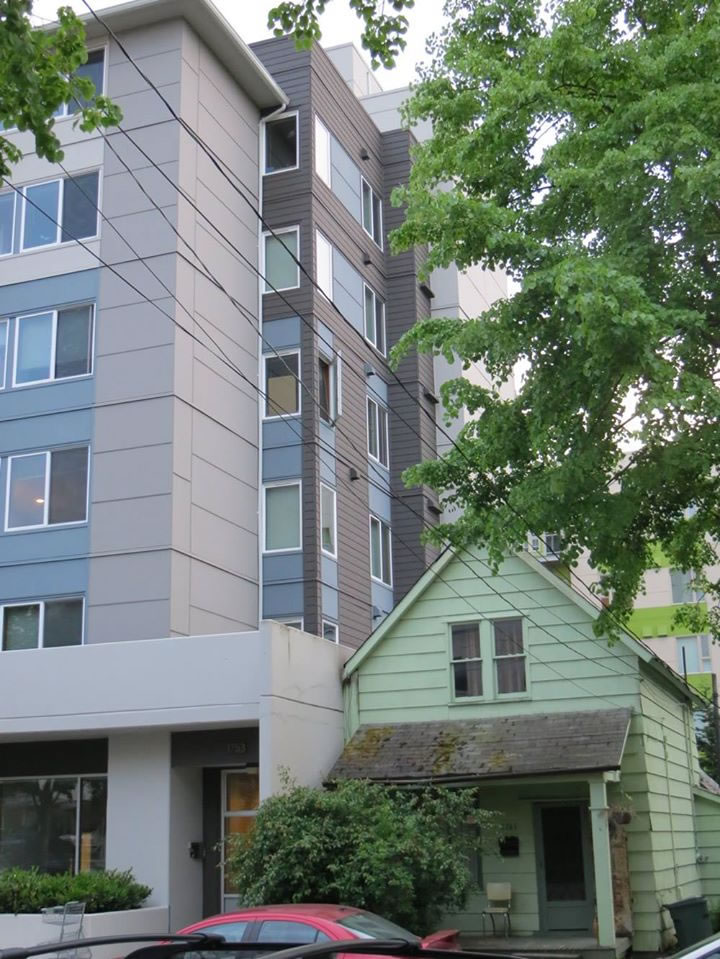 Does upzoning single family neighborhoods to multi-story apartments really make more affordable housing for people on modest incomes? Urbanist theory holds that if you put enough housing units on the market, the cost of housing will come down. That may be true in one sense but in another, it’s not.
Does upzoning single family neighborhoods to multi-story apartments really make more affordable housing for people on modest incomes? Urbanist theory holds that if you put enough housing units on the market, the cost of housing will come down. That may be true in one sense but in another, it’s not.
◄ The apartment units on the left sprang up in Seattle’s Ballard neighborhood after there was an intensive upzoning there, and while there are definitely more rental units in Ballard now, occupancy rates are still tight as newcomers from other cities keep pouring in. As a result, the rent hasn’t come down, especially when measured on a per-area basis. The rent for a dinky unit in the building on the left might be lower than for the cottage on the right, but the per-square-foot cost is likely to be considerably higher. Meanwhile the neighborhood’s character has been destroyed. Sunny streets lined with gaily colored cottages and postage-stamp gardens have given way to canyons of drab hive-like monoliths and car-crammed streets.
Density is a devil’s bargain.

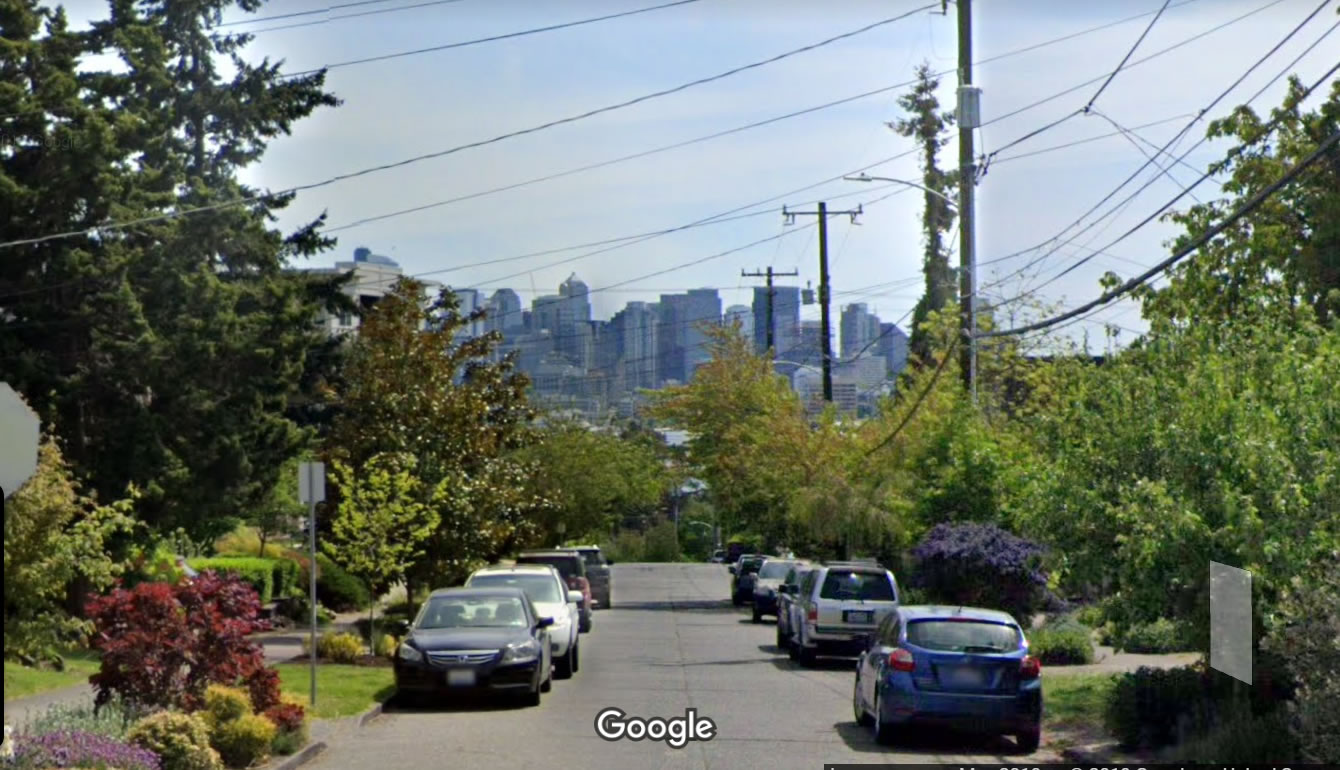
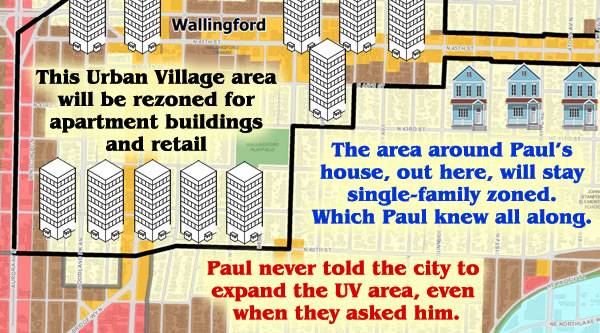
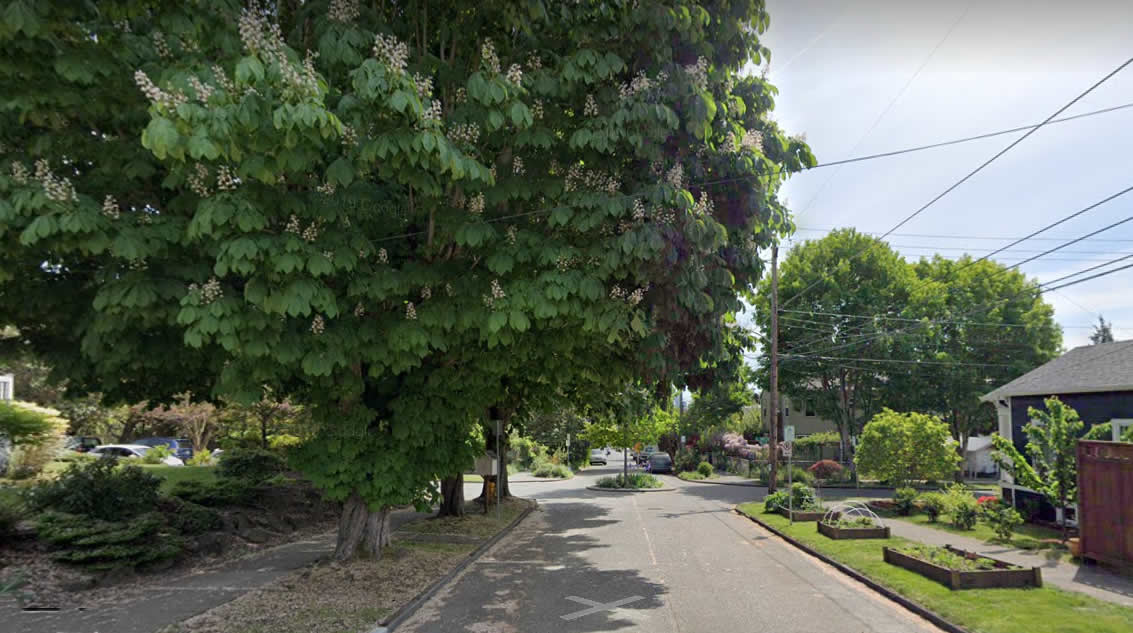
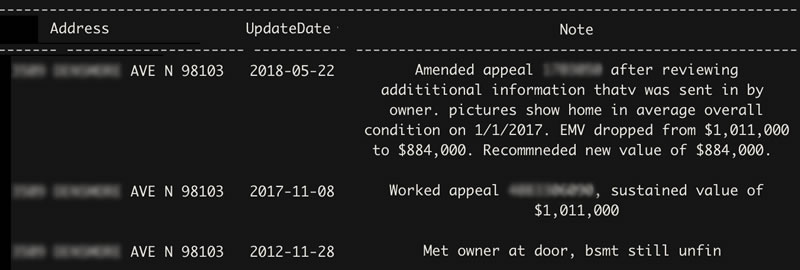





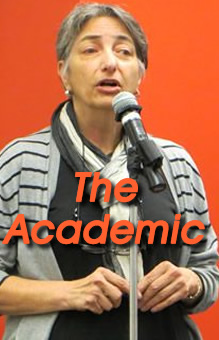














Wow, really stretching to demonize this “SJW”.
Ftr, his spouse works at day shelter for homeless folks, and even when she worked at the coworking space your outdated source gave you, the income was closer to half what you’ve inferred here.
Hard to take anything you say seriously when so much is founded on erroneous assumptions.
A friend of mine made some donations to Paul’s wife’s homeless support project and yet, within days, Paul was publicly bashing my friend and his wife did nothing to stop it. A real class act, those two.
I verified her position online and a manager at her level of a company like this would be expected to make the amount I gave. I estimated Paul’s income conservatively to allow for some wiggle room in their joint income, but if Paul wants to show me their income figures, I’ll revise my number downward.
Leftists frequently deny following their own medicine. This blog reminds me of all the Democrats in DC that send their own kids to private schools while lecturing the public about the value of public schools, simultaneously defending and financially supporting the teacher’s unions.
This is an AMAZINGLY accurate description of Seattle!
I don’t understand why tearing down a duplex, with two three-bedroom units that rent for $1600 a month, and replacing them with 40 1 bedroom units that rent for $2600 a month is helping keep rents down.
If the city were really concerned about low income, working-class people, they would be directing development to south Seattle, where there are abandoned properties and empty lots, and leaving the stock of habitable, low-cost housing alone.
Clearly, the billionaire investment firms, which have bought up thousands of Seattle houses, runs the city. They finance the elected officials, and offer incentives to the appointed officials, and led-by-the-nose Seattlites keep supporting it.
Fantastic article and agreed wholeheartedly. Without question‘density’ is destroying Seattle. It has already destroyed most of it. We must vote normal people into city government but sadly there is a critical mass of socialist, leftist parasites that grows by the day.
Just got my car broken into last night. It was parked on the street in Ballard. Along with density comes homeless encampments and shelters with human dregs that break a $200 window to steal a bag with nothing by paper and my glasses in it, that won’t do anyone but me any good.
They are not only destructive of themselves, but of everyone else, too.
Sometimes “density” is a way to get the bums out of downtown, where the gazillionaires have their empty million-dollar condos, and move them to the working class neighborhoods that are now too big and complex for the residents to keep tabs on each other.
I just read Social Justice Hypocrite from beginning to end. Wonderfully laid-out with fantastic diagrams, photographs and research back up. Really good job you did.
I often refer to a book on traffic that I learned so much from about human behavior. You know that trope about traffic that it would be better if we just built more lanes? Guess what? Soon after construction is done, the new lane fills up almost immediately and the same slow state of traffic quickly resumes. On the other hand, when an impending traffic crisis is announced (such as the Alaskan Way Viaduct being closed), the sky doesn’t fall. Psychology and opportunism (an element of capitalism) steps in and people avoid by taking other routes or means of transport, or stay at home.
I believe the same thing occurs with housing. Build more units and they will quickly fill, and the homeless situation will continue. It’s a flawed concept that building more units will solve this issue.
I think the word intimidation is a lot more instrumental in this issue than is brought up. People without housing move here and maneuver by intimidation to assert their right to stay wherever they fancy. They gauge the city’s will to either accept or reject their forcible squatting. Their intimidation needs to be met with City policy that is humane but strict, preserving the quality of neighborhoods that currently exist.
Hypocrites like the person in this piece dilute many efforts in that direction. They’re deluded in their concept of a solution, and they use their political might, will, shaming attempts and money to influence weak-willed lawmakers here to pursue deeply-flawed policy directions.
Glad I don’t live next door to this jackalope. Enough of the overpaid clueless from MSFT, Alphabet, Amazon already ruining Wallingford and Seattle politics with sheer idiocy. He’s right about one thing its too late as his kind has already effed it up for the rest of us so we might as well sell out at the highest price possible and not sell to any effing programmer ever.
“Ftr, his spouse works at day shelter for homeless folks, and even when she worked at the coworking space your outdated source gave you, the income was closer to half what you’ve inferred here.”
Oh, wow, so he earned ONLY $190k? It sounds like he is REALLY struggling.